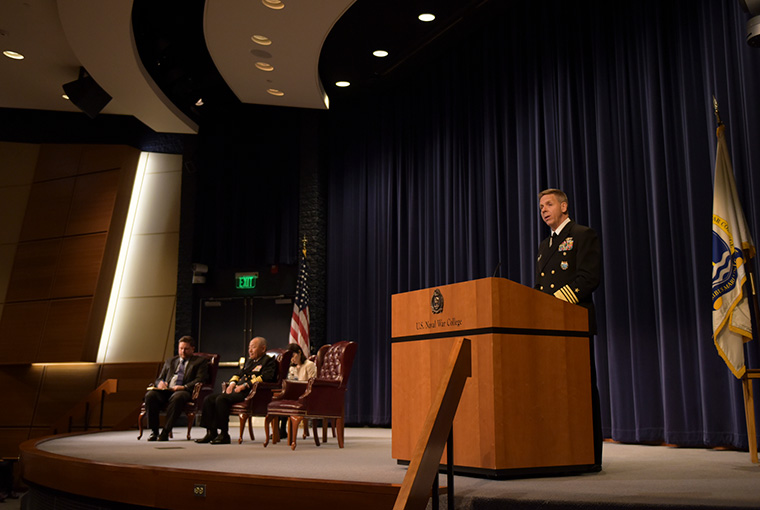US Indo-Pacific Command Leader and Japan Self-Defense Forces Chief of Joint Staff Address Students

NEWPORT, R.I. -- U.S. Navy Adm. Philip Davidson, commander of U.S. Indo-Pacific Command, and Adm. Katsutoshi Kawano, chief of the joint staff for the Japan Self-Defense Forces, visited the U.S. Naval War College on Friday, March 22, 2019.
The two officers observed a war game being held at the college and addressed students and faculty.
“For more than 70 years, the Indo-Pacific has been largely peaceful and prosperous,” Davidson, who attended the Naval War College in 1992, said during his portion of a joint presentation titled “Cooperation for a Free and Open Indo-Pacific.”
“This was made possible by two things: The willingness and commitment of free nations to work together in a rules-based international order. And, the credibility and combat power of the U.S. Indo-Pacific Command and its ability to work alongside the militaries of its allies and partners.”
Kawano, who was a U.S. Naval War College student in 1997, said the U.S.-Japan alliance has adapted and strengthened in recent years.
“In order to maintain global prosperity in the ever-changing security environment that the international society is facing now, it is essential to closely work with like-minded nations such as Australia, India and Southeast Asia countries who share common values and security interests and promote security cooperation with them, with the Japan-U.S. alliance being the cornerstone,” Kawano said.
Since 1884, the U.S. Naval War College has served as a place of original research on all questions relating to war. The institution educates and develops future leaders for the U.S. Navy and the other military services. More than 50,000 students have graduated since the first class of nine students in 1885, and hundreds of today’s active-duty admirals, generals and senior executive service leaders are alumni.
